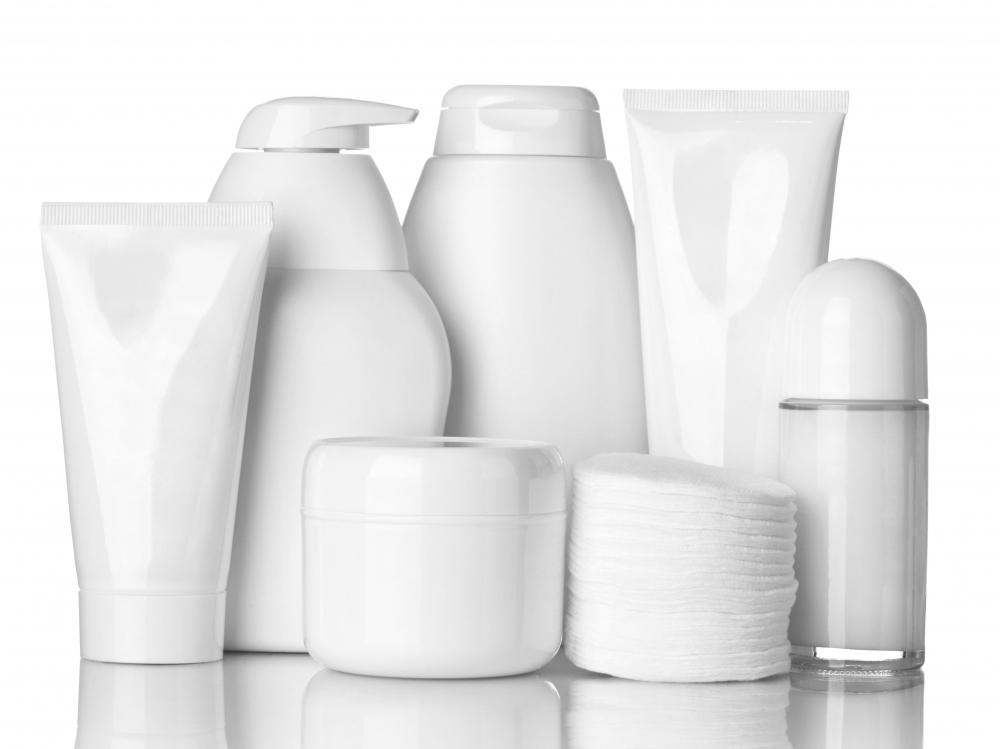At WiseGEEK, we're committed to delivering accurate, trustworthy information. Our expert-authored content is rigorously fact-checked and sourced from credible authorities. Discover how we uphold the highest standards in providing you with reliable knowledge.
What are the Different Types of Acne Ointment?
Prescription acne ointment and and over-the-counter acne ointment can contain different active ingredients that fight acne in numerous ways. Some ointments kill acne-causing bacteria, some exfoliate the skin, and others help reduce oil. Common types of acne ointment could use active ingredients such as salicylic acid, benzoyl peroxide, sulfur, resorcinol antibiotics and retinoids.
One of the most common types of acne ointment is made with salicylic acid. Salicylic acid works by unclogging pores and reducing acne redness and swelling. These ointments also can help break down whiteheads and blackheads and keep new pimples from forming. Salicylic acid is commonly found in over-the-counter acne treatments and is available in some prescription medications. The medication could cause some stinging and skin irritation.

Another readily available type of acne ointment uses benzoyl peroxide. Benzoyl peroxide is an antibacterial agent that kills P. acnes, the bacteria that is responsible for acne. These ointments usually are available from 2.5 percent to 10 percent strength. The 2.5 percent medication typically works as well as the higher strength ointments and causes less irritation. Benzoyl peroxide ointments are available over-the-counter and by prescription.

Some people might experience an allergic reaction to benzoyl peroxide, and it can cause redness, dryness and peeling. Acne ointment containing this active ingredient can increase sensitivity to the sun. Individuals who use this medication should be aware that it could bleach hair and clothing.
One less common type of acne ointment contains sulfur as its active ingredient. Sulfur works by drying and peeling the skin. These ointments often have an unpleasant odor and can cause some skin discoloration. Sometimes sulfur ointments also contain resorcinol, which helps by removing dead skin cells that can clog pores. Sulfur and resorcinol ointments can cause dryness and redness.

Numerous antibiotic ointments to treat acne are available by prescription, including clindamycin, erythromycin and sodium sulfacetamide. They can help prevent bacteria from growing and causing acne, and they can reduce inflammation. These ointments also can cause redness, dryness, itchiness and peeling.
Another common type of prescription ointment uses retinoids to treat blemishes. Retinoids work by unclogging pores and rapidly exfoliating the skin. These ointments can cause sun sensitivity, redness and irritation.
When using any acne ointment, it’s a good idea to start with the lowest strength available and only one application a day to prevent skin irritation. As the skin becomes more accustomed to treatment, an individual can increase the number of applications and the strength, if necessary. Most acne ointments can take four to six weeks to show results, so patience is necessary.
AS FEATURED ON:
AS FEATURED ON:













Discussion Comments
@kylee07drg – I have had the best results from a triple antibiotic ointment for acne. It is prescription strength, and it contains ingredients known to be highly effective for treating severe acne.
I couldn't have gotten it from anywhere but my dermatologist. Since I was already in my twenties when I went, my insurance would not pay for acne medication. They only paid for it for people under eighteen, so I had to spend $100 for a big tube of the ointment.
The tube lasted me for over a year, though. I know that most people would gladly spend that much a year to get rid of bad acne.
What is the best ointment for acne? I have tried several kinds, but I don't believe I've found it yet.
It seems that everything I can get over the counter contains either salicylic acid or benzoyl peroxide. Salicylic acid seems to do nothing for my acne, and benzoyl peroxide dries my skin out so much that I begin to peel and turn red where I have applied it.
My brother uses a sulphur ointment, but it smells so horrible that I can't stand the thought of using it on my own skin. It reminds me of rotten eggs.
@orangey03 – Sunburn resulting from acne medication is rather severe, isn't it? I also got burned while using an acne cream, and I had to get a corticosteroid cream to treat the burn.
After that, I decided to stop using the cream that was making my skin so sensitive to the sun. I loved being outdoors, and I wasn't about to sacrifice my time in the sun for a clearer complexion.
So, I started buying over-the-counter creams, and I only used them at night. As long as I didn't have them on when I went outside, I didn't have sun sensitivity. They may not have worked as well as the prescription stuff, but I felt free to live my life as I chose again.
I used a retinoid ointment for my acne. I got a prescription for it from my dermatologist, and it worked really well for the acne on my face.
However, I also had little white bumps on the backs of my forearms. Without the doctor's permission, I decided to start using the ointment on them, as well.
I had no idea how sensitive this would make the area to the sun. I went to the lake the following weekend, and even though I had on a good sunscreen, my arms burned so badly that I had black scabs pop up on them after about a week. I had to get steroid cream from my dermatologist to treat the area, and seven years later, I still have scars from the burns.
Post your comments